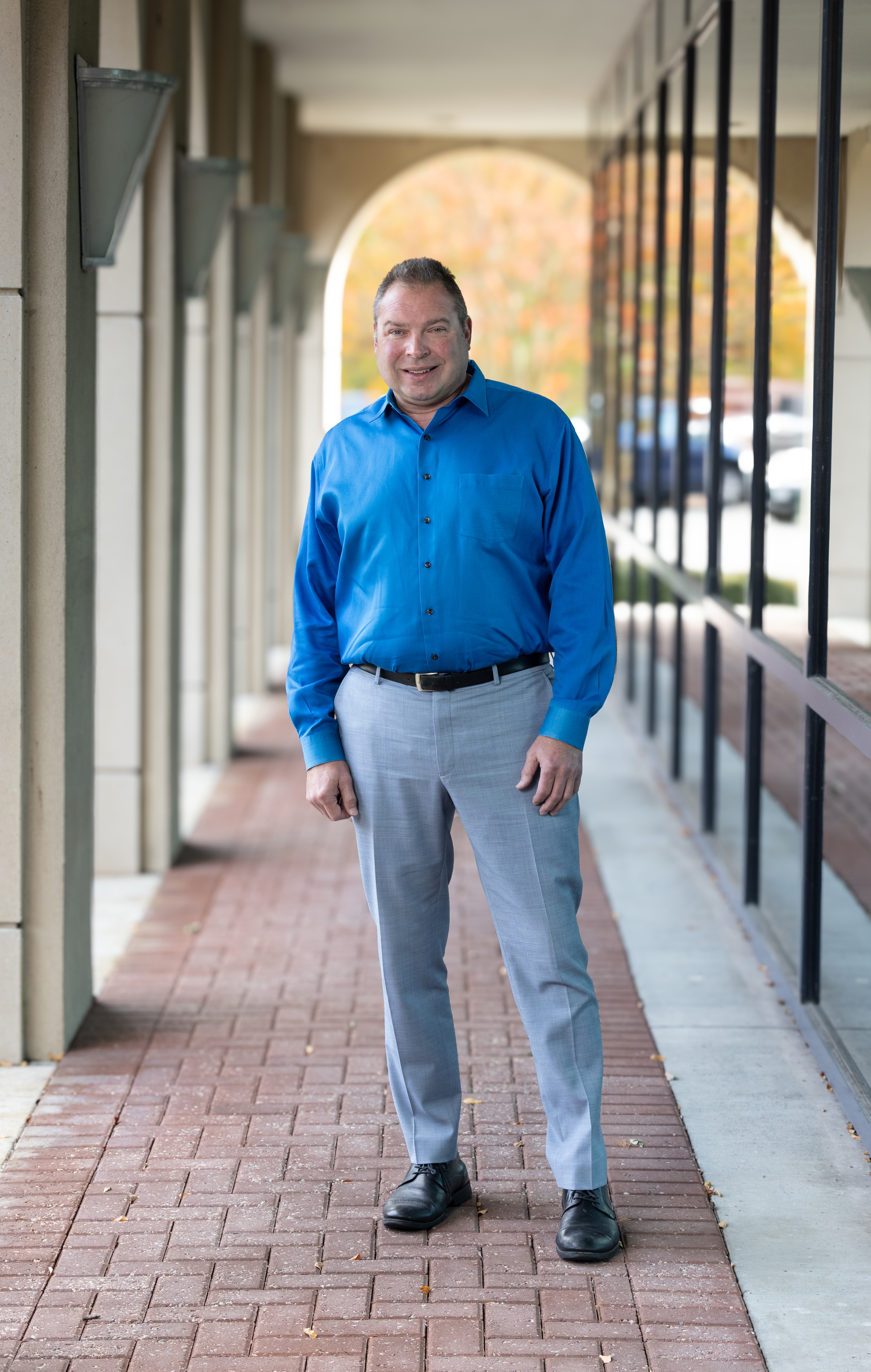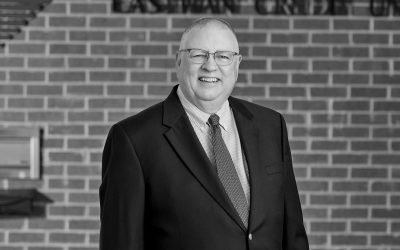Helping clients get the most value for their retirement dollars
Helping clients get the most value for their retirement dollars

Rusty Woods • Virginia Beach, VA
Enterprise Financial Network • Cambridge Investment Research Inc.
Read full biography below
Proactive Advisor Magazine: Rusty, talk about your practice’s client base and how you view your mission in serving those clients.
 I have been an independent financial and investment advisor for close to 30 years in the Hampton Roads area of Virginia. I have a very good understanding of the market and the financial needs of a large segment of this community. Coming from a middle-class, hard-working family, I’ve found that this demographic group is often underserved by large financial institutions—and many advisors.
I have been an independent financial and investment advisor for close to 30 years in the Hampton Roads area of Virginia. I have a very good understanding of the market and the financial needs of a large segment of this community. Coming from a middle-class, hard-working family, I’ve found that this demographic group is often underserved by large financial institutions—and many advisors.
A significant percentage of my client base is made up of working-class individuals and their families. The Hampton Roads area has a large concentration of military bases, shipyards, defense contractors, construction and technology firms, and government offices. I might be speaking with a pipefitter in the morning and someone who works in IT in the afternoon. But my clients aren’t limited to just these groups. I also work with teachers, first responders, health-care workers, business executives, professionals, and many others—people from all walks of life.
While they may not always have the largest account balances—though some are quite impressive—my clients generally recognize the importance of asset growth and maintaining a steady income stream in planning for retirement. They are also worried about taking large losses in their accounts. These fears are usually based on the market volatility and drawdowns they have personally experienced or know have occurred in recent decades. Their primary concern is making sure they don’t run out of money in retirement.
I see my mission as helping these clients efficiently deploy their current and future assets, because no one gets to retirement and says, “I wish I had less money.” When I first meet with them, I ask several fact-finding questions to better understand their financial situation and broad goals. I often say, “You’ve obviously done a lot of the right things. You’ve accumulated these assets. And you didn’t do that by accident. You did it with hard work, perseverance, and by sacrificing today to have something for tomorrow. My job is to help fine-tune your financial and investment planning to help you get the most value for your dollar—and protect what you have accumulated—so that your money works as hard for you as you did to earn it.”
Describe your financial-planning process.
While I have access to advanced planning tools and sophisticated resources from third parties, I try to keep my client-facing process as straightforward and transparent as possible. It starts with getting to know the client on a personal level, then moving into a detailed fact-finding process. I review their family’s assets and liabilities, cash flow, investment accounts, insurance coverages, employee benefits, retirement plans, and other financial and lifestyle considerations.
Next, we discuss their broad goals and objectives for the future. How do they envision their ideal retirement? What financial concerns keep them up at night? And how do they feel about investment risk? I make sure to include spouses in these discussions, as their risk profiles may differ, and it is important to find common ground.
Once I have a thorough understanding of their financial priorities and goals, I develop what I call “financial concepts” or solutions that address their specific financial and retirement situation. I present these to the client, discuss the pros and cons, and we agree on a plan of action.
This process isn’t limited to investment planning, though that’s a core element. Clients may have many other areas of concern, such as Social Security claiming strategies, handling Medicare, finding tax efficiencies for the future, or legacy planning. I often act as the quarterback of their financial team, coordinating with other third parties they may work with or CPAs, attorneys, and product experts in my network. I also take great pride in my experience and knowledge of workplace retirement and benefit plans, which many clients need guidance on. After implementing the plan, we conduct quarterly or semiannual reviews to ensure everything’s on track and performing as expected.

What is your broad philosophy for investment planning?
I strongly advocate for clients to take charge of the investment environment rather than adopt a “wait and pray” attitude. Over my 29 years of experience as an advisor, I’ve seen dramatic changes in both equity markets and client attitudes. I’m very mindful of market volatility and think a proactive, responsive approach to managing money and risk is required. I explain my thinking in terms clients can relate to. By using the tools of active management, I can help clients feel more in control of their investment outcomes and, ultimately, their financial futures.
I find that pre-retirees and retirees are often most comfortable with what I call a “split bucket” investment approach, which combines annuity products with an actively managed equity portfolio. The annuities provide a stable income stream—ensuring essential needs are met—keeping the lights on and food on the table, so to speak. This allows clients to sleep at night knowing their income needs are satisfied, which can make them more comfortable allocating dollars to equity strategies that can seek opportunities in trending markets. Most of the annuity products I use have an income provision. Some of the newer annuity products that are tied to market performance and offer risk-management “buffers” can also serve as effective wealth-accumulation tools.
For the managed equity portion, we develop a risk profile to determine whether a client’s approach should be more conservative or aggressive. In all cases, I am looking for asset growth over time with a high degree of risk management built in. I look to third-party active money managers to provide the expertise and professionalism to handle market ups and downs. I employ various strategies that can use leverage or go inverse of the market, adjusting exposure depending on current conditions. Some of these strategies can even go to 100% cash in very unfavorable market scenarios.
My clients appreciate that they can potentially profit in both rising and falling markets. But for me, the key to active management is long-term asset protection. I think it was Will Rogers who said he was more concerned with return of capital than return on capital. We look to managers to maximize returns within risk parameters in any market scenario. To me, that sums up active management.
Importantly, now we can also help clients apply risk-managed active strategies within their workplace 401(k)s. Some of my clients saw the market crash in 2008, panicked, and sold out of equities in their 401(k)s, taking a long time to reenter the market. With third-party money managers in place, we can help prevent this from happening in the future. Clients can have significant flexibility and choice with most, if not all, of their retirement money. Active management of 401(k)s using third-party managers is something I am very focused on going forward.
“I am looking for asset growth over time with a high degree of risk management built in.”
Ideally, what would you like a client to say about the experience of working with you?
I believe clients most value having an advisor who is reliable, trustworthy, and highly responsive. Most of my new business comes from current client referrals, and I think my clients would tell a friend or associate, “Whatever financial issue you bring to Rusty, he will work tirelessly to find a solution that addresses your needs.” That is what drives my commitment to clients. Seeing them gain a greater understanding of their finances and peace of mind about their future makes it all worthwhile.
Rusty Woods is an investment advisor representative (IAR) affiliated with Enterprise Financial Network, based in Virginia Beach, Virginia, and Raleigh, North Carolina. He is a registered representative of Cambridge Investment Research Inc. With over 29 years of experience in the financial-services industry, Mr. Woods focuses on addressing the investment, risk-management, and retirement-planning needs of his clients. He says a major feature of his independent practice model is the ability to source a wide and diverse universe of product and service solutions for clients.
Mr. Woods was born in Wisconsin and spent much of his childhood in a “coal-mining town in the Appalachian Mountains” before his family relocated to the Hampton Roads area of Virginia. His father was a coal miner and later worked as an HVAC electrician overseeing commercial installations. His mother was a teacher, primarily a reading specialist, for many years. Mr. Woods and his sister attended public schools, where he played on the varsity football and basketball teams. Reflecting on his family life, he says, “While we did not have a lot of money, our parents saved what they could and encouraged my sister and me to work hard, do the right things in our lives, and pursue our career aspirations.”
Mr. Woods attended Christopher Newport University, where he studied business management. During his time there, he was recruited by Mass Mutual, an opportunity he credits with developing his professional knowledge and skills through a strong training program. Mr. Woods notes that he was fortunate to meet Steve Bell, who invited him to join his OSJ practice. He and Mr. Bell, who later co-founded Enterprise Financial Network, have worked together for 28 years. The OSJ had two long-term broker-dealer relationships before affiliating with Cambridge Investment Research Inc. in 2021. Mr. Woods values Cambridge for its excellent technology, growth tools, and advisor and client support services.
Mr. Woods lives in Hampton, Virginia, where he enjoys boating and fishing around the Chesapeake Bay area. “My father was an avid fisherman, and he instilled in me a passion for spending time on the water,” he shares. Mr. Woods is also an enthusiastic football fan who enjoys family gatherings, fine wine, dining out, and travel. His charitable efforts include supporting Eggleston Services, which helps individuals with disabilities pursue employment opportunities, and Habitat for Humanity.
Securities offered through registered representatives of Cambridge Investment Research Inc., a broker-dealer, member FINRA/SIPC. Advisory services through Cambridge Investment Research Advisors Inc., a registered investment adviser. Cambridge and Enterprise Financial Network are not affiliated.
Photography by Don Monteaux
QUICK TIP

Promoting the benefits of working with an independent financial advisor
Rusty Woods is an investment advisor representative (IAR) affiliated with Enterprise Financial Network, based in Virginia Beach, Virginia, and Raleigh, North Carolina. He is a registered representative of Cambridge Investment Research Inc. With over 29 years of experience in the financial-services industry, Mr. Woods focuses on addressing the investment, risk-management, and retirement-planning needs of his clients.
Mr. Woods takes pride in his career as an independent financial advisor, serving the needs of clients with solutions that have helped improve their financial lives. He shares a brochure with prospective clients that outlines many of the benefits of working with an independent advisor, which includes the following points:
- An independent financial professional “is not an employee of an investment or financial services firm—they are an independent business owner. They have the freedom to structure their business in a manner that best serves their clients.”
- Independent financial professionals “can offer non-proprietary products from a wide variety of companies.” They can “provide investment advice and holistic financial and retirement planning guidance without expectations to sell proprietary products.”
- “In an independent model, the financial professional, investment firm, and clearing and custody firm are all separate entities that are regulated and work together to serve the needs of the investing client.”
- Clients can “choose to interact with [an] independent financial professional through a fee-based or commission relationship, or both, based on [their] financial needs.”
- The freedom and flexibility afforded to an independent financial professional allows for the development of customized, needs-based financial and investment plans for clients—not relying on prepackaged alternatives.
RECENT POSTS









